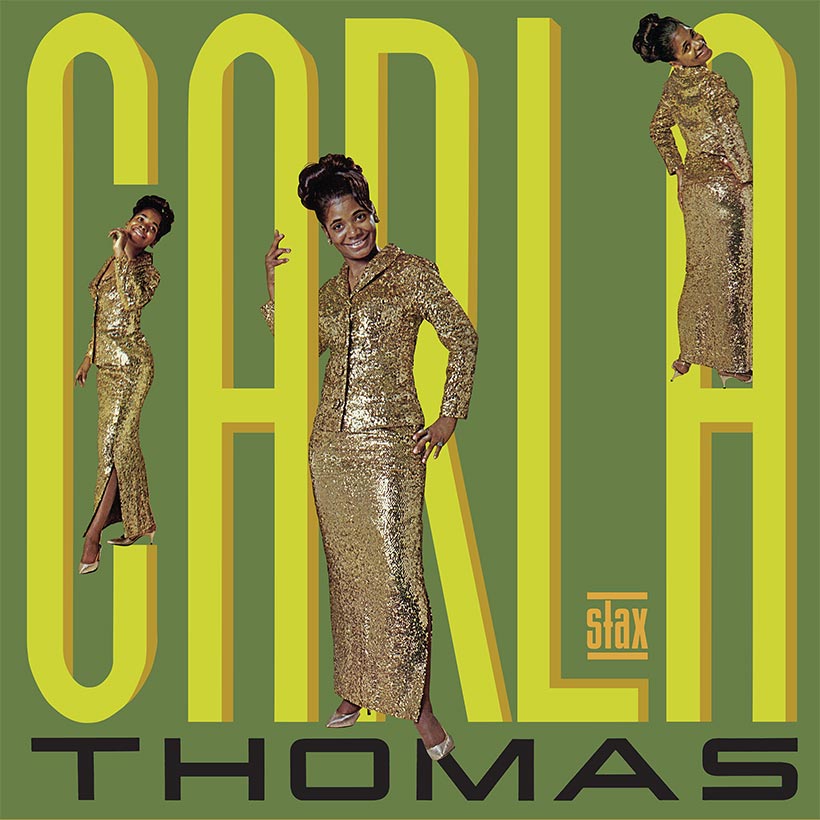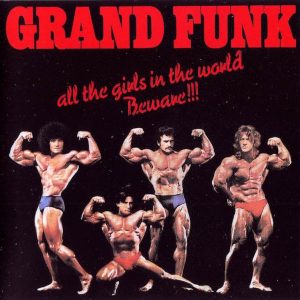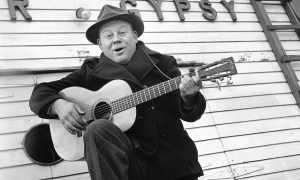Released in the autumn of 1966, Carla was the third album that the then 23-year-old Carla Thomas released for Stax Records, following in the wake of her previous long-players, Comfort Me – released earlier that same year – and her 1961 debut LP, Gee Whiz. Helping to propel Carla up the charts (the album eventually peaked at No. 7 in the US R&B albums chart and No. 130 in its pop counterpart) was the infectious single “B-A-B-Y,” a classic slice of Memphis soul written by Stax’s rising songwriting duo, Isaac Hayes and David Porter.
“B-A-B-Y” was a huge crossover single. It first charted in the US R&B singles chart in September 1966 and eventually plateaued at an impressive No. 3 (significantly, it also broke into the US Hot 100, making No. 14).
A Memphis native, Carla Thomas – whose beguiling voice was a blend of sweetness and toughness – was something of a Stax veteran by 1966, having joined the label in 1960, when it was still known as Satellite Records. That year she scored a regional hit with “’Cause I Love You,” a catchy duet with her father, singer and Memphis radio personality, Rufus Thomas (Carla was the second of his three children, all of whom were musically-inclined).
At that time, Carla was only 17 and still in high school, but “’Cause I Love You” changed both her life and Stax’s destiny. The song was enthusiastically received by Atlantic producer and promoter Jerry Wexler, who persuaded Satellite’s co-owners, Jim Stewart and Estelle Axton, to sign a distribution agreement with the label which helped to put it on the map. With Atlantic’s help, in early 1961 Carla scored her first solo national hit with the self-penned “Gee Whiz (Look At His Eyes),” which made the US R&B Top 5. Its success persuaded Stewart and Axton (who would change the label’s name from Satellite to Stax that same year) to pursue the R&B market rather than explore the country and rockabilly styles of their initial Satellite releases in the late 50s.
Understandably, “B-A-B-Y,” with its pulsing bassline and sweetly soulful refrain, was the opening cut on the Carla LP, though the singer’s previous hit single, the jaunty “Let Me Be Good To You” (another Hayes-Porter number), which reached No. 11 in the US R&B charts earlier in 1966, was also included.
In addition, the album showcased Carla Thomas as a more-than-capable songwriter. Ever since “Gee Whiz,” she had provided some material for her own albums, and Carla was no exception. She contributed the vivacious, brassy R&B groove “I Got You, Boy,” the pleading romantic ballad “What Have You Got To Offer Me,” and co-authored the midtempo, string-laden “Fate” with Isaac Hayes and James Cross.
But like many R&B albums of the 60s, Carla also featured covers of familiar pop, blues, and even country hits. Of the latter, “I Fall To Pieces” is Carla’s heartfelt reading of Nashville queen Patsy Cline’s 1961 hit confessional, and she also delivers an outstanding version of Hank Williams’ heart-rending anthem, “I’m So Lonesome I Could Cry.”
Carla also puts her indelible stamp on blues maven Willie Dixon’s classic “Little Red Rooster,” while Jimmy Reed’s chugging, brassy “Baby What You Want Me To Do” (featuring Steve Cropper’s razor-sharp guitar) segues into the super-smooth ballad “For Your Love,” a 1958 hit for R&B singer Ed Townsend.
The album’s poignant closer, “Looking Back,” was co-written by singer Brook Benton and had been covered by crooner Nat King Cole in 1958, who transformed it into a Top 5 US pop and R&B hit. Different again is “You Don’t Have To Say You Love Me,” Carla’s take on British singer Dusty Springfield’s 1966 transatlantic smash.
A few months after Carla was released, Carla Thomas enjoyed an even bigger hit album in the shape of King & Queen, a collection of duets with Stax’s leading man, Otis Redding, released in the spring of 1967. Though that represented the commercial apex of her career – and crowned her the queen of Memphis soul – Carla continued to record for Stax up until 1973, before quietly slipping off the R&B radar, only briefly re-emerging 30 years later with a couple of live albums.
Carla remains her most commercially successful solo album and arguably her most potent artistic statement (though 1969’s The Queen Alone comes close). Over 50 years later, it stands up as a must-hear, go-to album in the Stax catalogue.
Listen to the best of Stax Records on Apple Music and Spotify.




